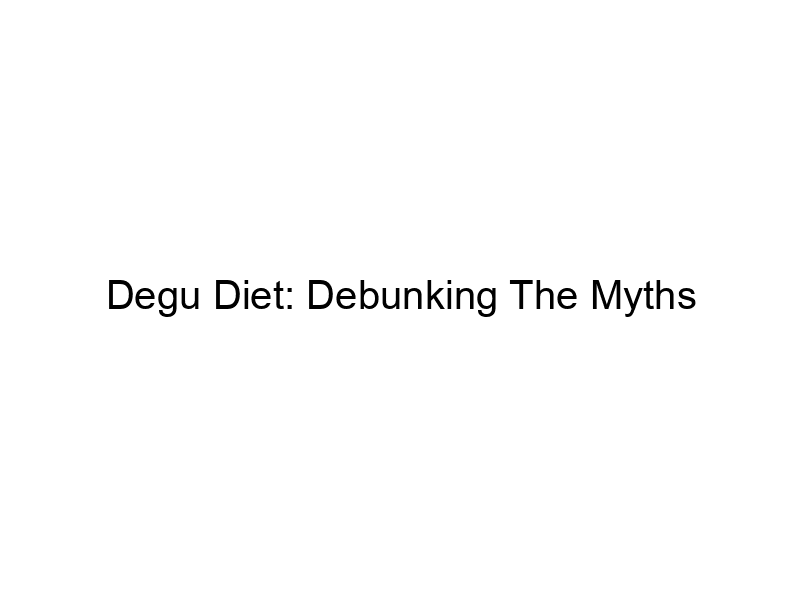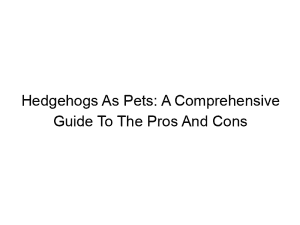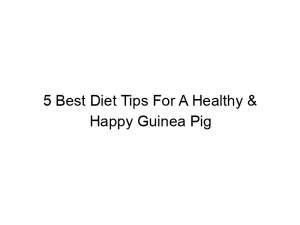Are you a proud degu owner, eager to provide the best possible care for your tiny, energetic companions? Understanding their dietary needs is crucial for their health and happiness. Degu Diet Myths: What You Should and Shouldn’t Feed Them is a common concern, and this comprehensive guide will help you navigate the complexities of a degu-friendly diet, separating fact from fiction. We’ll explore what constitutes a healthy degu diet, common misconceptions, and the potential consequences of feeding your degus the wrong foods. You’ll learn how to create a balanced diet plan, identify safe and unsafe foods, and ensure your degus thrive under your care. Let’s get started!
Degus are herbivores with highly specialized digestive systems designed for a high-fiber diet. Their digestive tracts are long and complex, requiring significant amounts of roughage to maintain proper function. Lack
of fiber can lead to serious digestive problems, including impaction and tooth overgrowth.
The Degu’s Natural Diet
Wild Degu Diets
In their natural habitat, degus consume a variety of grasses, weeds, seeds, and bark. This diverse diet provides the necessary nutrients and fiber for optimal health. Understanding their wild diet is crucial in replicating a healthy diet in captivity.
Common Degu Diet Myths
Myth 1: Fruits and Vegetables are Healthy Treats
While small amounts of certain fruits and vegetables can be occasional treats, they should never form a significant part of a degu’s diet. Many fruits are high in sugar, which can lead to obesity, dental problems, and diabetes in degus. Vegetables, while containing some beneficial nutrients, should also be given sparingly due to their relatively low fiber content.
Safe Foods for Degus
Grass Hay: The Foundation
Timothy hay, orchard grass, and brome grass are excellent choices. These hays provide crucial fiber, keeping the digestive system functioning correctly. Always ensure the hay is fresh, green, and free of mold or mildew.
Unsafe Foods for Degus
Toxic Foods to Avoid
Many common human foods are toxic to degus. Chocolate, avocado, citrus fruits, onions, garlic, and processed foods should be strictly avoided. Even seemingly harmless foods like potatoes and tomatoes contain compounds that can be harmful to degus. Always check a comprehensive list of safe and unsafe foods before offering anything new to your pet.
Creating a Balanced Degu Diet
Daily Food Intake
A balanced diet typically consists of high-quality grass hay as the staple, supplemented with small amounts of degu-specific pellets and occasional safe treats like dandelion greens or a tiny piece of a safe fruit or vegetable. The quantity of pellets should be adjusted based on the degu’s age, activity level, and weight.
The Role of Degu Pellets
Choosing the Right Pellets
Degu pellets should be chosen carefully, selecting those that are low in sugar and fat, and high in fiber. Always read the ingredient list carefully, avoiding those with added sugars, artificial colors, or fillers.
Water and Hydration
Fresh Water is Essential
Clean, fresh water should always be available to your degus. Use a heavy, stable water bottle to prevent spills and keep the water clean and fresh. Dehydrated degus are more susceptible to health problems.
Signs of Nutritional Deficiencies
Identifying Potential Issues
Signs of nutritional deficiencies can include dull coat, weight loss, lethargy, dental problems, and digestive issues. If you notice any of these symptoms, consult a veterinarian specializing in exotic animals immediately.
The Importance of Dental Health
Preventing Tooth Overgrowth
Degus’ teeth grow continuously, and chewing on hard materials like hay is crucial for wearing them down. Lack of appropriate chewing can lead to painful overgrowth, requiring veterinary intervention.
Treats: Moderation is Key
Healthy Occasional Treats
Occasional treats can be given, but moderation is crucial. Small pieces of dandelion greens, small amounts of certain safe fruits (like a small sliver of apple), and a few seeds can be offered sparingly.
Understanding Degu Metabolism
Metabolic Rate and Dietary Needs
Degus have a relatively high metabolic rate, requiring frequent small meals throughout the day rather than large infrequent feedings. Providing a constant supply of hay will help them maintain consistent digestion.
Preventing Obesity in Degus
Weight Management
Obesity is a significant health concern for degus. Overfeeding, especially with high-sugar or high-fat foods, is a major contributing factor. Monitor your degu’s weight and adjust food intake accordingly.
The Role of Supplements
When Supplements are Necessary
Generally, a balanced diet should provide all necessary nutrients. However, in specific cases (such as illness or nutritional deficiencies), your veterinarian may recommend specific supplements.
Frequently Asked Questions
What are the most common mistakes degu owners make regarding diet?
Overfeeding sugary treats, not providing enough hay, and feeding inappropriate foods (such as chocolate or avocado) are the most common mistakes. These can lead to obesity, dental problems, digestive issues, and even death.
Can I give my degu human food?
Generally, no. Most human foods are inappropriate for degus and can be toxic. Stick to hay, degu pellets, and occasional small amounts of safe vegetables and fruits.
How much hay should I feed my degu?
Hay should form the bulk of your degu’s diet, making up around 70-80% of their daily intake. Always provide an ample supply to ensure they can graze throughout the day.
My degu is losing weight. What could be wrong?
Weight loss can indicate various health problems, including nutritional deficiencies, dental issues, or illness. Consult a veterinarian immediately to determine the cause and receive appropriate treatment.
What type of water bottle is best for degus?
Use a heavy, stable water bottle that prevents spillage and keeps the water clean. Ensure the spout is easy for your degu to access and clean regularly to prevent bacterial growth.
Final Thoughts
Providing a healthy and balanced diet is crucial for your degu’s well-being. Understanding the common myths surrounding degu nutrition is the first step to ensuring a long and healthy life for your furry friend. Remember, hay should be the cornerstone of their diet, supplemented with appropriate pellets and very occasional, small amounts of safe treats. By following these guidelines, you can help your degus thrive and enjoy a happy, healthy life. Always consult with a veterinarian if you have any concerns about your degu’s diet or health. Your careful attention to their nutritional needs will be greatly rewarded by a happy and healthy companion.




